Team
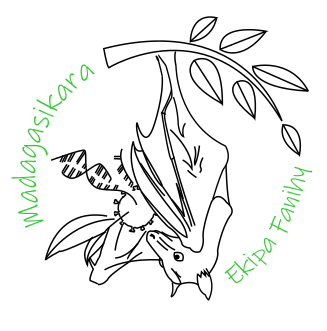
The Brook Lab includes students and postdocs based in the Department of Integrative Biology at UC Berkeley, as well as graduate students from my former Department of Ecology and Evolution at the University of Chicago. In addition, we support a suite of inspiring Malagasy graduate students at the University of Antananarivo. We carry out all field work in close collaboration with Association Ekipa Fanihy, (‘Ekipa Fanihy’ is Malagasy for ‘Team Fruit Bat’), a Madagascar-based NGO focused on bat research and conservation.
UC Berkeley Team
Charlie Voirin (he/him) is a PhD student in the Department of Integrative Biology at UC Berkeley. He is interested in combining experimental and computational techniques to study the ecology and immunology of bats so that we can better predict the spillover of infectious diseases from animal to human populations. Before joining the Brook lab, Charlie was a postbaccalaureate fellow in the Viral Epidemiology and Immunity unit at NIAID, where he worked on a clinical trial studying the human immune response to a dengue vaccine. He holds a BA in Biology from Kenyon College, where he studied how environmental and ontogenetic factors impact telomere dynamics in nestling barn swallows, and an MSc in Ecology and Evolution from the University of Chicago.
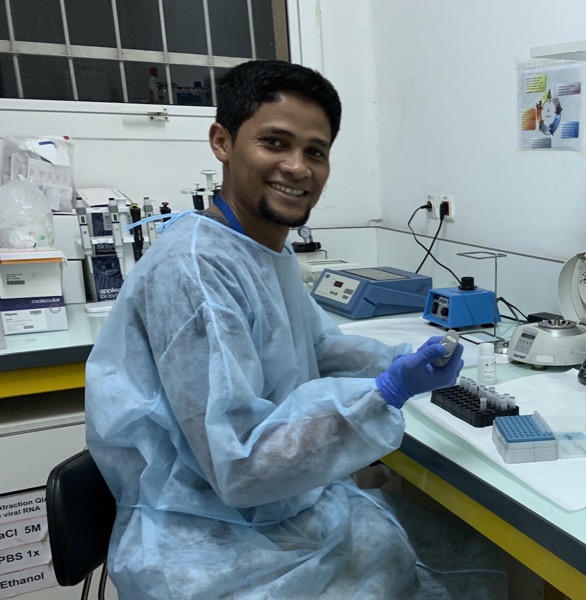
Dr. Christian Ranaivoson (he/him) is a Postdoctoral Scholar in the Department of Integrative Biology at UC Berkeley. He leads mNGS efforts targeting viral discovery in Malagasy fruit bats and febrile patients reporting to public hospitals in Madagascar. He has a PhD from the Department of Zoology and Animal Biodiversity at the University of Antananarivo, Madagascar and worked as a Research Engineer in the Virology Unit at Institut Pasteur de Madagascar, as well as a Postdoctoral Scholar in the Department of Ecology and Evolution at the University of Chicago. Christian’s PhD research focused on the distribution and transmission of intra-erythrocytic parasites of Malagasy fruit bats, specifically Babesia spp. infections of the Madagascar flying fox, Pteropus rufus. At IPM, Christian led NGS studies focused on SARS-CoV-2 genomic surveillance in Madagascar. Christian holds a Master’s degree in Biology, Ecology, and Animal Conservation from the University of Antananarivo and has previously studied infections of Malagasy crayfishes and nematode parasites of Malagasy reptiles.
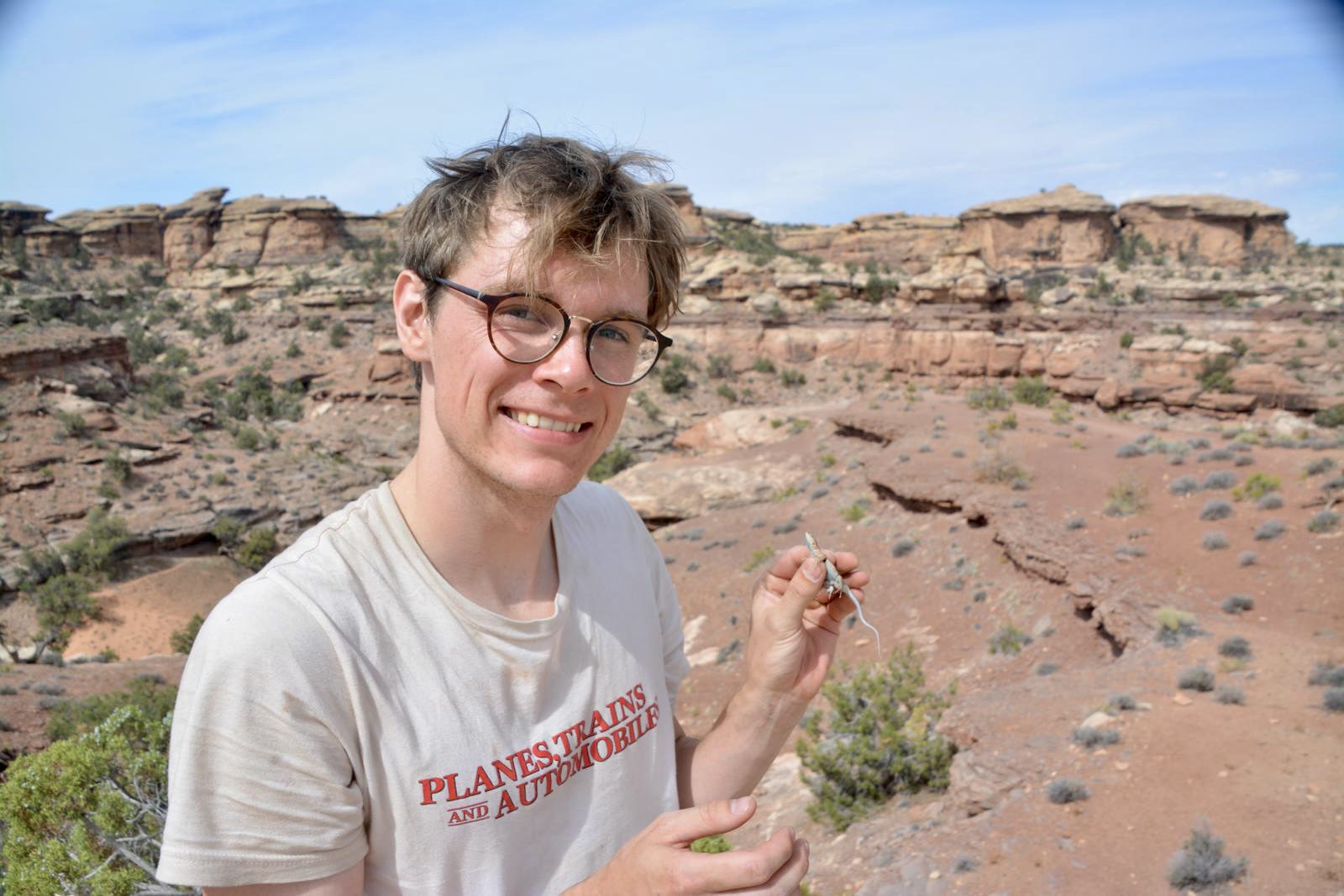
Martin Roland (he/him) is our Lab Manager. He formerly served as a Field Technician with Ekipa Fanihy, as well as an NIH Post-Baccalaureate Fellow in the lab. He graduated from the University of Chicago with a B.A. in Environmental Studies and a Minor in Biological Sciences, where he engaged in research focused on the morphological study of field mice for species identification. As a field TA he has led student groups on rigorous field projects including sampling for aquatic insect diversity in the mountains of Arizona, trapping rodents in the Midwest, and surveying intertidal algae abundance in Cape Cod.
University of Chicago Team
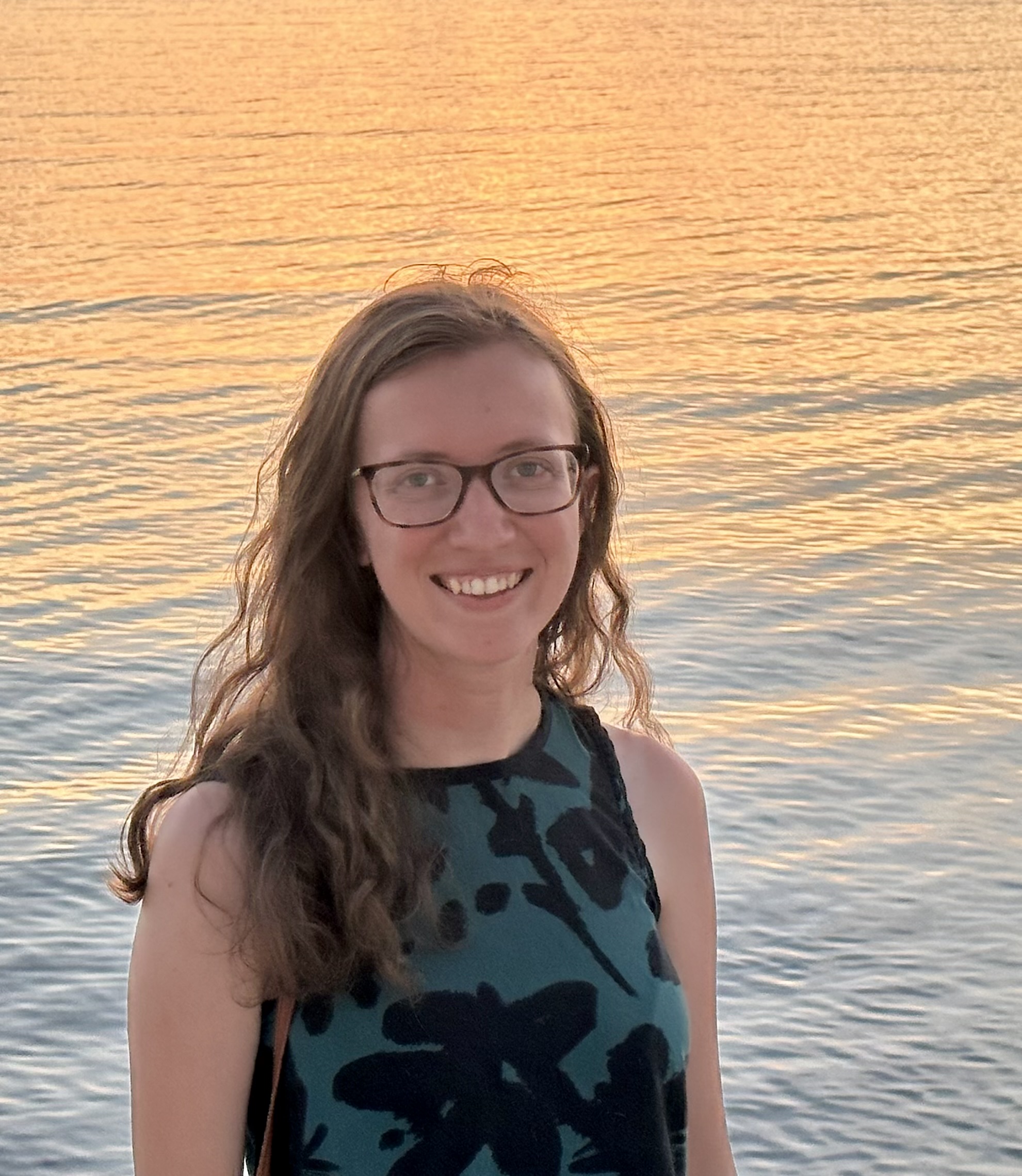
Sophie Lockwood (she/her) is a PhD student in the Department of Ecology and Evolution at the University of Chicago where she is interested in combining computational and field biology to understand the transmission dynamics of zoonotic viruses. She is also carrying out several human public health projects in Madagascar, including one focused on the genomic epidemiology of HIV. Sophie holds a MSPH from Rollins School of Public Health at Emory University and a BS from Georgetown University and has previously worked on projects exploring the intersections between climate change and health and in outbreak response and science policy with local and federal government.
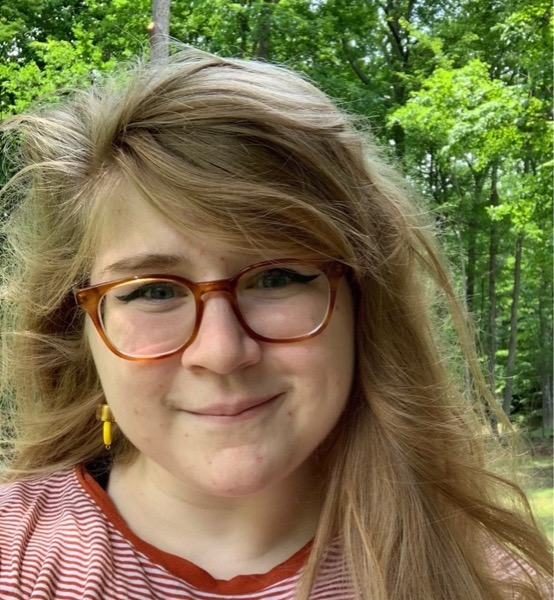
Gwenddolen Kettenburg (she/her) is a PhD student in the Department of Ecology and Evolution at the University of Chicago, where she studies seasonal pathogen dynamics and carries out novel virus discovery in Madagascar bats, while also exploring the experimental evolution of virus growth rates in bat cell lines. Gwen holds a Master’s degree in Infectious Diseases and Microbiology from the University of Pittsburgh while working as a research technician and has previously worked on projects investigating inhibiting cell death pathways after avian influenza virus infection in a human precision-cut lung slice model. She earned her B.S. in Biology in 2018 from Keystone College working on studying antibiotic resistance and phage resistance in model bacteria species and studying pathogen prevalence in deer ticks in Pennsylvania.
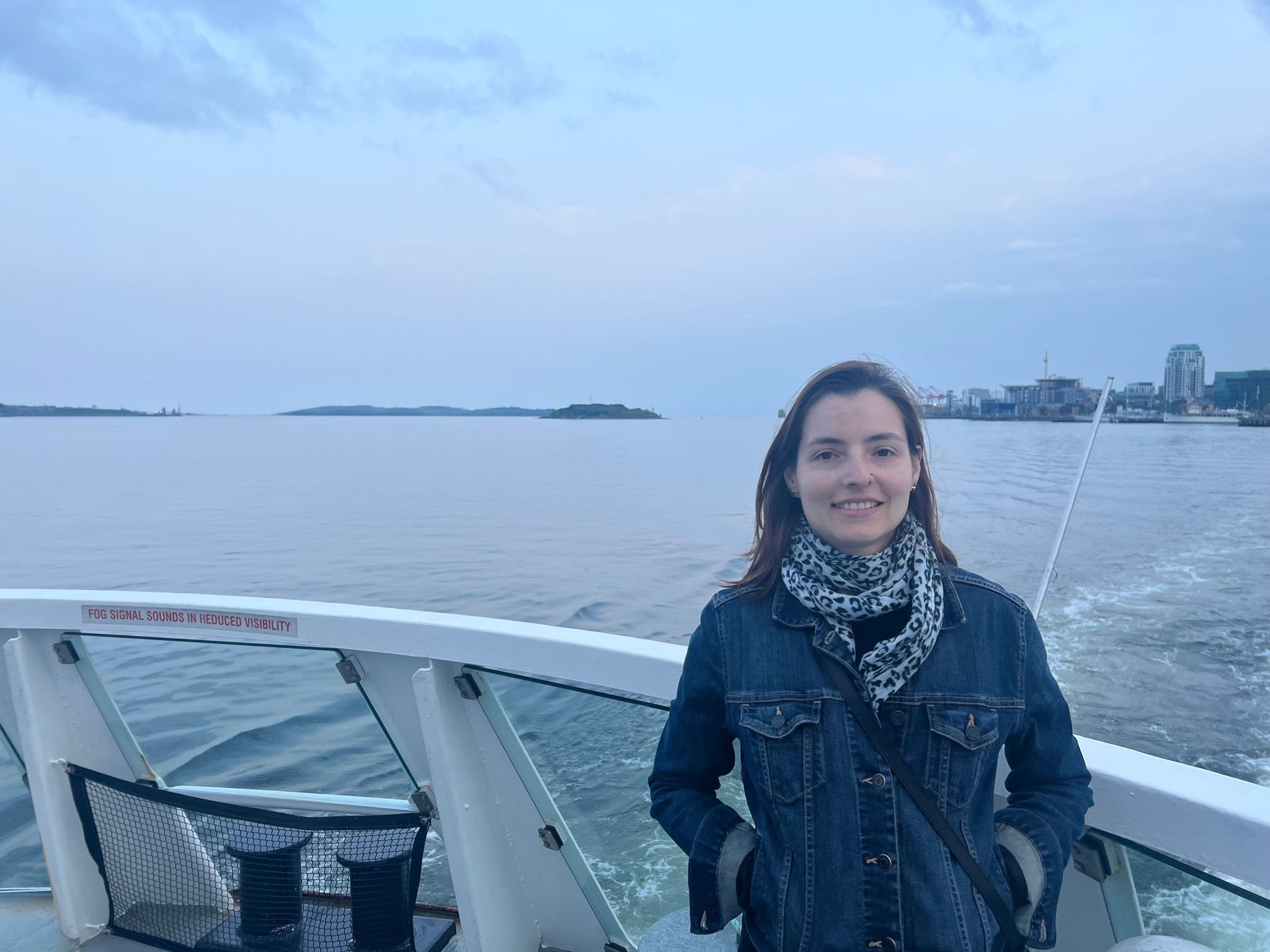
Dr. Natalia Cortes-Delgado (she/her) is a Postdoctoral Scholar in the Department of Ecology and Evolution at the University of Chicago. Her research focuses on estimating effective population size and connectivity of three species of Malagasy bats, as well as the influence of bat microbiome on tolerance to viral infections. Natalia holds a PhD in Ecology and Evolution from the University of Illinois at Chicago, where she investigated the role of the Andes as a driver of genetic differentiation in bat populations. She has a Master’s degree in Sciences from the Instituto de Ecologia, A.C. in Mexico where she studied roost use and foraging areas by the fruit bat species Sturnira hondurensis. Natalia’s research interests are broad and are mainly concentrated in bat evolution, including the understanding of patterns of genetic structure and speciation in bat species, in addition to bat immune response evolution.
Madagascar Team
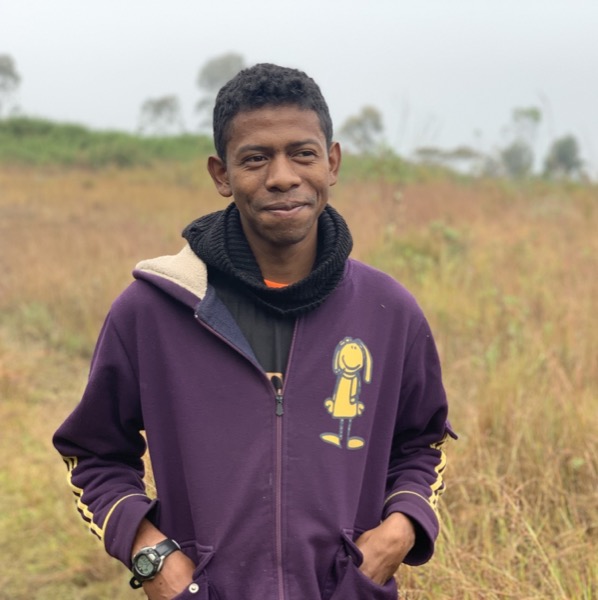
Angelo Andrianiaina (he/him) is a PhD student in the Department of Zoology and Animal Biodiversity at the University of Antananarivo, Madagascar, where he studies seasonal variation in ectoparasite infestation of two Malagasy fruit bats (Eidolon dupreanum and Rousettus madagascariensis) and the impacts of this variation on the dynamics of infection for vector-borne pathogens, such as Bartonella spp. Angelo holds a Master’s degree in Animal Conservation from the University of Antananarivo and has previously worked on projects promoting lemur conservation in vanilla plantations in northern Madagascar, as well as projects documenting small mammal and herpetological biodiversity in the Moramanga District of east-central Madagascar.
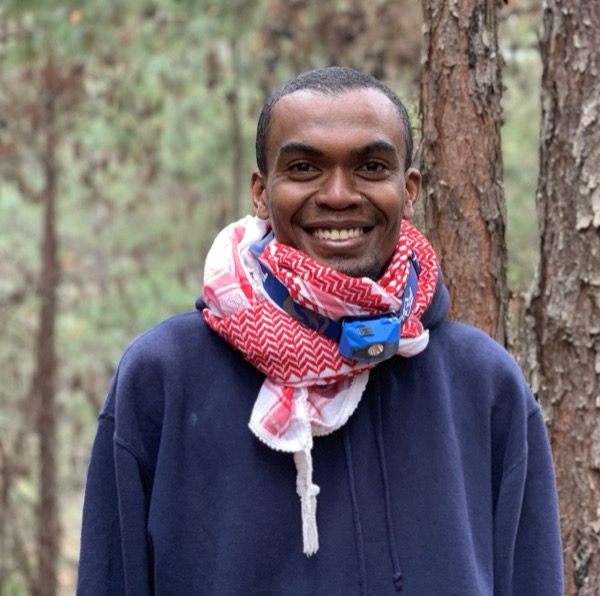
Santino Andry (he/him) is a PhD student in the Department of Entomology at the University of Antananarivo, Madagascar, where he worked with the Madagascar Biodiversity Center to document the effects of logging intensification on exotic and native ant assemblages in the new protected area of Ambohidray, District of Moramanga, Madagascar. Santino joined Ekipa Fanihy in August 2019 and is just starting his PhD work with the team, splitting time between GPS telemetry and fruit bat ecotparasite projects.
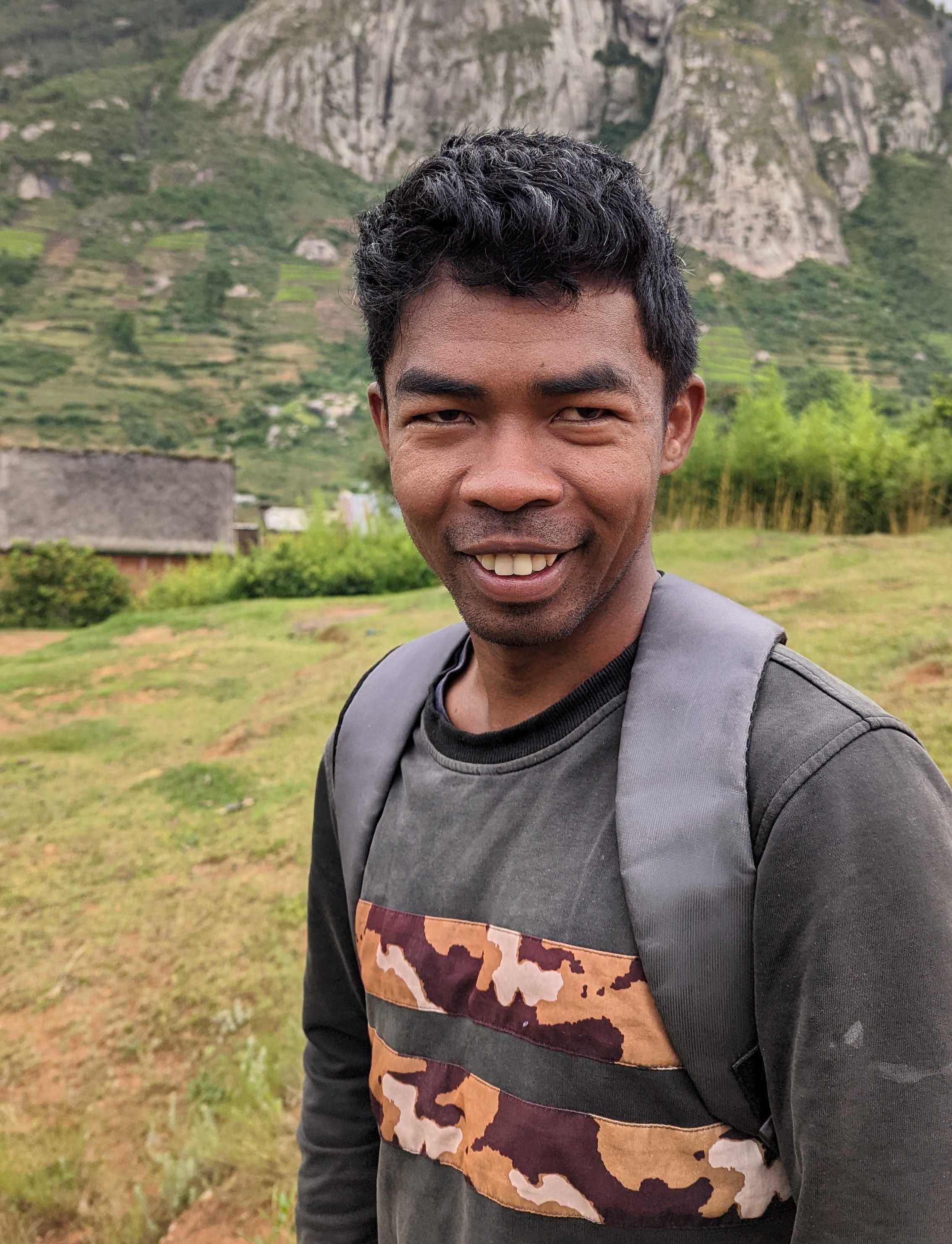
Rova Ratsimamanga (he/him) is a Master’s Student with Association Ekipa Fanihy.
Rova is currently pursuing a Master’s degree in the Department of Zoology and Animal Biology at the University of Antananarivo, Madagascar. He is studying Bartonella spp. prevalence on Madagascar’s fruit bats. Rova joined the Association Ekipa Fanihy in February 2023.
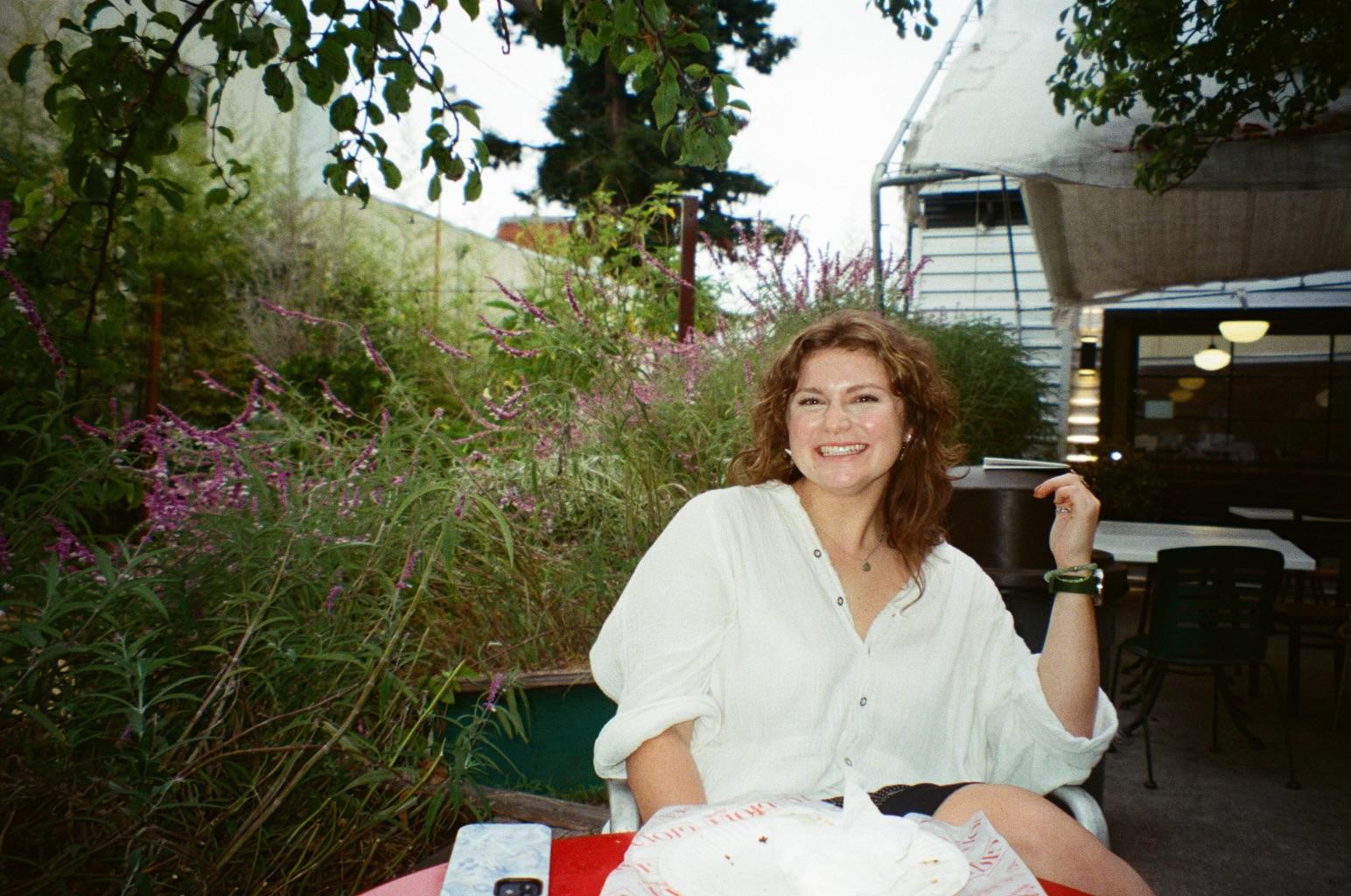
Monique Ades (she/her) is a Field Project Manager. She co-leads monthly field expeditions to capture and sample Madagascar endemic fruit bats. She graduated from California State University Fresno with a B.S. in Biology. While at CSU Fresno, she engaged in research regarding representation of bat specimens in the CSU Fresno vertebrate collection in comparison to similarly sized mammals and birds. Additionally, she spent three summers as a field technician on a U.S Forest Service meadow restoration project focused on restoring meadows affected by wildfires in the Sierra Nevada mountains. Most recently she worked as an Agriculture Volunteer with Peace Corps Madagascar and is now returning to Madagascar to join Ekipa Fanihy.
Ekipa Alumni
Emily Cornelius Ruhs was a Postdoctoral Scholar in the Brook lab from 2021-2025 at the University of Chicago. She is now a Postdoctoral Research Scientist in the Grainger Bioinformatics Center at the Field Museum of Natural History in Chicago, IL.
Sophia Horigan was a PhD student in the Brook lab from 2021-2025 at the University of Chicago. She is now a research scientist in the wastewater surveillance division at the California Department of Public Health.
Abigail Mendoza (she/her) was the Data Manager for the lab from Aug 2024-July 2025. She is now a research technician at Loyola University Chicago.
Theresa Laverty was a postdoctoral scholar in the Brook lab from Sept 2021 - December 2022 at the University of Chicago. She is now an Assistant Professor in the Department of Fish, Wildlife, and Conservation Ecology at New Mexico State University.
Katie Young was a Postdoctoral Scholar in the Brook lab from Jan 2022 - December 2022 at the University of Chicago. She is now a Adjunct Assistant Professor at New Mexico State University and a postdoctoral scholar at the University of Texas, El Paso.
Mars Woodward was a post-baccalaureate scholar funded through the NIH PREP program to work in the Brook Lab from 2023-2024 at the University of Chicago. They are now a PhD student working with Dr, Kelly Speer and Dr. Luis Zaman in the Department of Ecology and Evolutionary Biology at the University of Michigan.
Freddy Gonzalez was a post-baccalaureate scholar funded through the NIH PREP program to work in the Brook Lab from 2021-2022 at the University of Chicago. He is now a PhD student in Dr. Paul Turner’s lab in the Department of Ecology and Evolutionary Biology at Yale University.
Katherine McFerrin was a Lab Manager with the Brook lab from Aug 2022 - Aug 2023 at the University of Chicago and a Field Project Manager with Association Ekipa Fanihy from Sept 2023-Dec 2024. She is now a PhD student in Dr. Tamika Lunn’s lab in the Odum School of Ecology at the University of Georgia.
Yimei Li was a post-baccalaureate Research Assistant in the Brook Lab at the University of Chicago from 2021-2022. She is now a PhD student working with Dr. Simon Levin, Dr. Bryan Grenfell, and Dr. A.J. te Velthuis in the Quantitative and Computational Biology program at Princeton University.
Areen Khan was a high school student working with the Brook lab through the University of Chicago Laboratory School “Summer LabLink” program. She is back at classes in her senior year and now applying to college.
Margot Bolaños-Gamez was an undergraduate who completed her University of Chicago Honor’s thesis in the Brook lab in 2023. She is now a Master’s in Public Health student at Emory University in Atlanta.
Vera Soloview was an undergraduate who completed her University of Chicago Honor’s thesis in the Brook lab in 2023. She is now an intern with the American Bird Conservancy in Chicago.
Nuzha Baksh was a Field Project Manager with Association Ekipa Fanihy from Sept 2022-Aug 2023 and a Data Manager from Sep 2023-June 2024. She is now a PhD student in Dr. Tamika Lunn’s lab in the Odum School of Ecology at the University of Georgia.
Michael McGuire was a Field Project Manager with Association Ekipa Fanihy from Jan-Dec 2023. He is now working forestry and conservation jobs in the Pacific Northwest.
Kendall Fitzgerald was a Field Project Manager with Association Ekipa Fanihy and a Research Technician in the Brook Lab at UChicago from Feb 2022-August 2023. She is now an independent documentary filmmaker.
Dominic Daniels was Field Project Manager for Association Ekipa Fanihy from Feb-Sept 2022. He is now working for Bat Conservation International in Pennsylvania.
Anecia Gentles was Field Project Manager for Association Ekipa Fanihy from Jan 2019 - March 2020. She is now a PhD student in Dr. Nicole Gottdenker’s lab in the Odum School of Ecology at the University of Georgia.
Kimberly Rivera was Field Project Manager for Association Ekipa Fanihy from Jan 2019 - Sep 2019. She is now the Urban Wildlife Information Network Coordinator at the Lincoln Park Zoo.
Sarah Guth was a PhD student in Mike Boots’ lab at UC Berkeley while Cara was a postdoc (2017-2021). Sarah worked closely with Cara on several field and computational projects. She is now an Assistant Professor of Biology at Skyline College in San Bruno, CA.